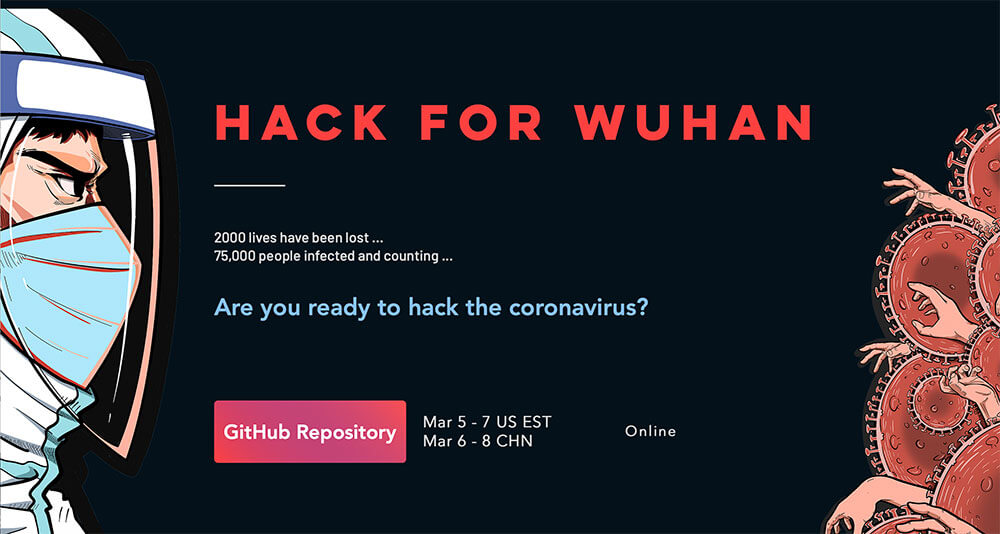
Tech startup Run the World hosted Hack for Wuhan, which searched for ways to solve issues brought about by the COVID-19 pandemic.
Run the World, an online event technology startup headquartered in Silicon Valley, officially launched on Feb. 27. A week later, the platform hosted Hack for Wuhan, an online hackathon that drew 58 teams of developers from 33 countries, all looking for ways to use software and technology to solve supply, communication, and other challenges in the fight against the COVID-19 pandemic.
In a traditional hackathon, “basically you have a room, you have a location for 48 hours, and then you have developers hacking,” said Xiaoyin Qu, Run the World’s co-founder. But for Hack for Wuhan, all that was needed was the third ingredient: developers, plus online platforms.
Qu, a former senior product manager at Facebook, dropped out of Stanford Graduate School of Business last year to found Run the World as a way to make meetings more accessible to wider audiences. The hackathon, held March 6-8, was organized by Xander Wu, founder of Wuhan 2020, an open-source developers’ community. The event drew 345 contestants, some of them working while quarantined, along with the participation of more than 6,000 developers at GitHub, an open-source tech platform. Instead of in-person judging, teams hosted online office hours where they demonstrated products for judges.
One of the advantages of an online hackathon, compared a physical event held in a certain geographic location, Qu noted, is that it can more easily draw specialized expertise — experts in AI, for example — from around the world. Hack for Wuhan included advisors and mentors from Stanford, MIT, Harvard, venture capital firms, Google, and Facebook, along with startups in Silicon Valley, China, and India. The hackathon was designed not only to gather developers together, but to accelerate tech-based solutions to fighting the virus and inspire developers to keep working together, she said.
Among the hackathon’s winning entries — Qu served as one of the judges — were a project-management platform designed to help volunteer organizations and/or individuals process and track donations; a system that would automatically trigger notices that medical and logistical supplies will be needed when cases are diagnosed in a geographic area; and a mobile application for self-diagnosis of symptoms.
During the development phase of her startup Run the World, Qu turned to resources, including PCMA’s CMP online course and “about 12 conferences,” to understand how meetings work, she said. Run the World, which Qu and co-founder Xuan Jiang tested for about four months before the launch, currently is waiving fees for meetings which are moving their content online because of the pandemic.
The goal at Run the World is not just to connect people, but to connect them in ways that enable deep interaction, Qu said. “When it’s feasible in the physical world, we should help facilitate that. When it is not feasible, we should make sure we can create opportunities.”
Barbara Palmer is deputy editor of Convene.
What Events Professionals Need to Know About COVID-19
PCMA has created a COVID-19 resources page to help event professionals find reliable information about the outbreak and to share events industry-related resources to ensure they are prepared.
